DOHA: National museum of Qatar is opening for the public from today. The 560,000-square-foot Museum is designed by Jean Nouvel.
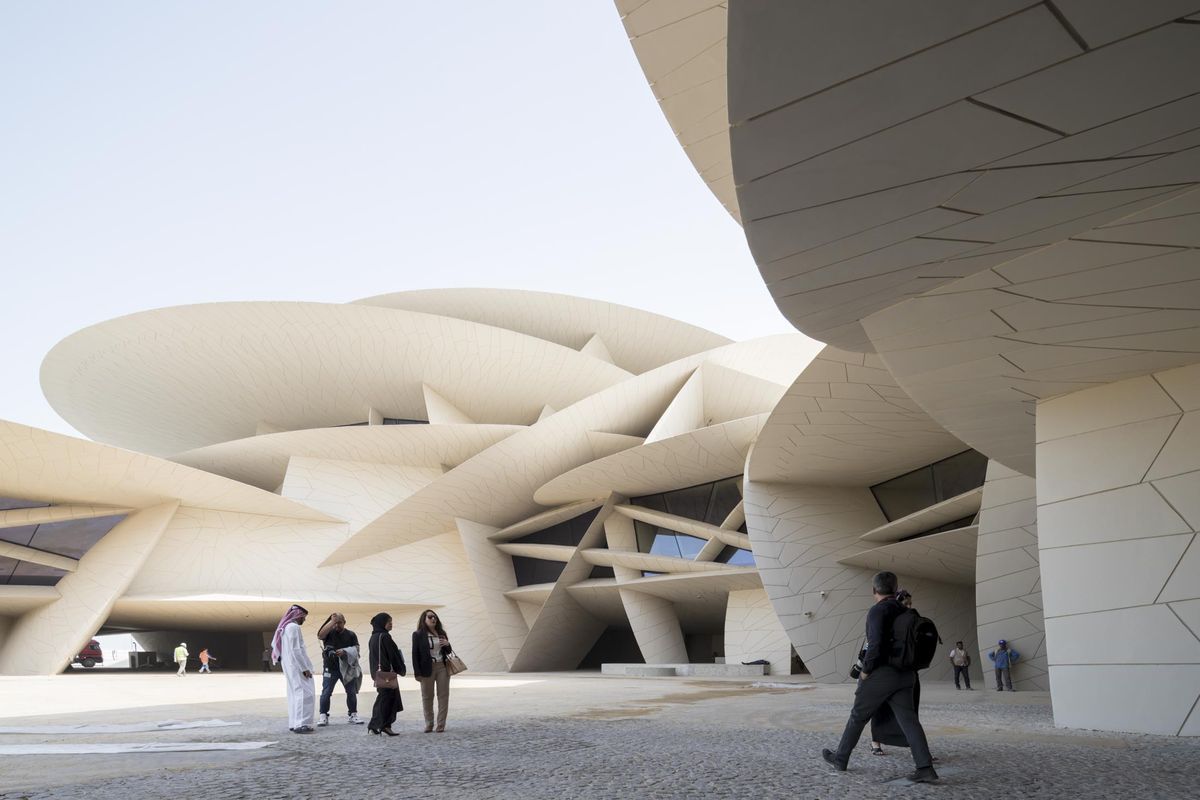
Sheikha Amna bint Abdulaziz bin Jassim Al Thani, director of the National Museum of Qatar said, “We believed we had the potential to go beyond even the most exciting existing museum displays and develop something truly immersive. And we believed the substance of those experiences ought to come from the Qatari people themselves.”
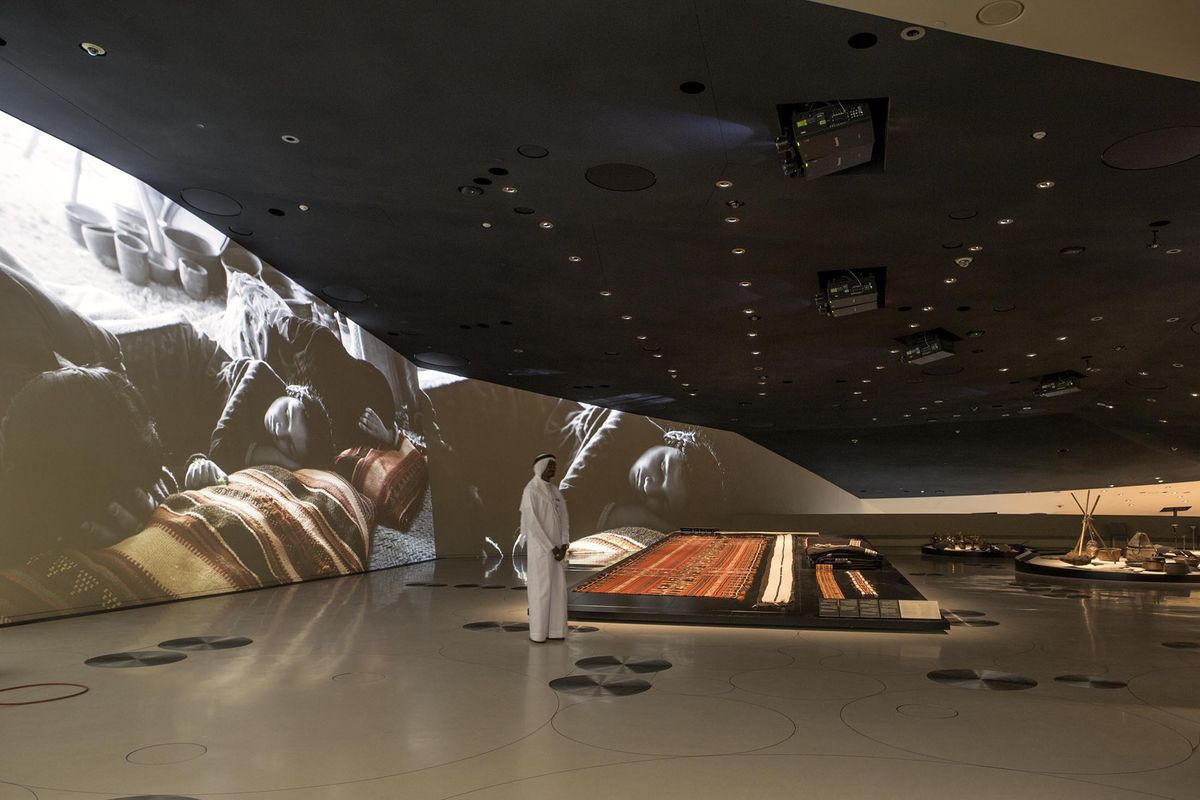
A mile-long path through the museum’s alien, spacecraft-like discs starts where it all began—literally. A film rushes through 700 million years of life on Earth, with fossils and animal models on display. The succeeding galleries move on to human life on the Qatari peninsula, with films and artifacts about life in the desert and the once-lucrative pearling trade.

It’s the second half of the museum that brings the history of Qatar, tracing the tribal conflicts that culminated with the rise of the Al Thani ruling family. Then it’s on to oil and gas, and the discoveries that dramatically transformed what was historically an obscure desert peninsula into indispensable cog in global energy security.
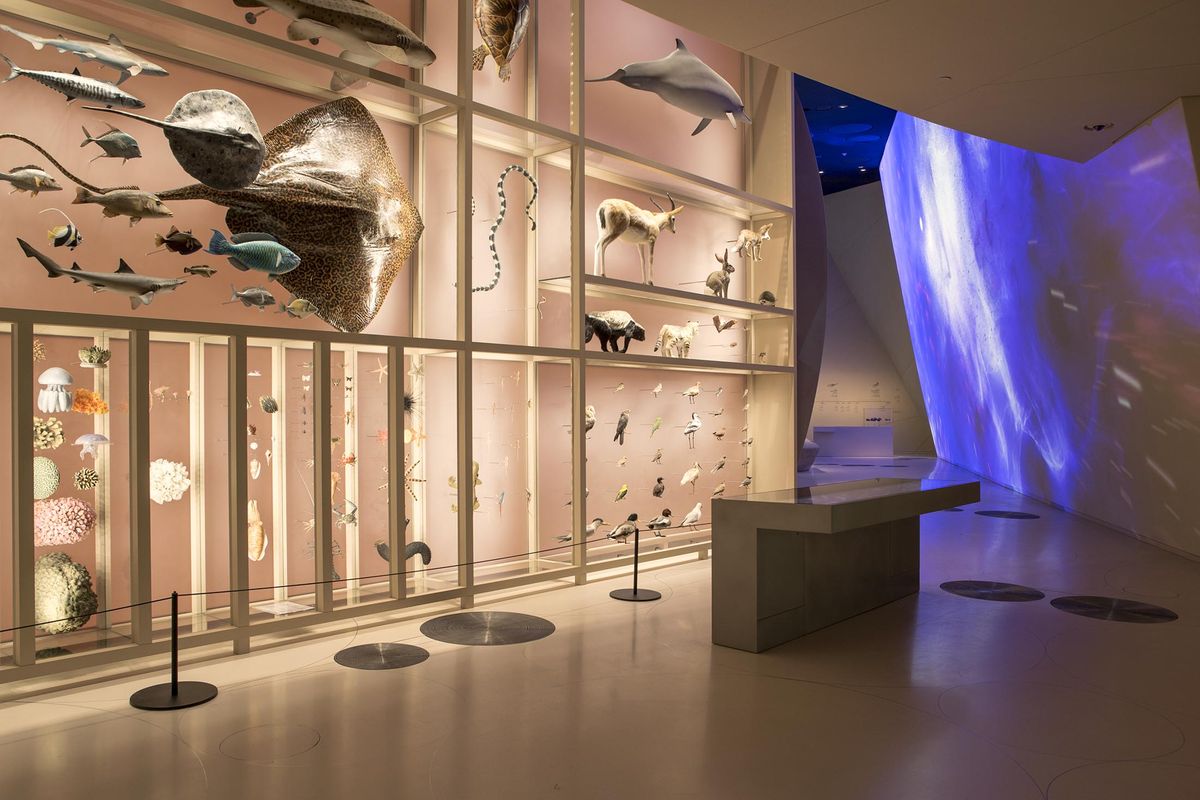
“To construct a building 350 meters long, with its great big inward-curving disks, and its intersections and cantilevered elements—all the things that conjure up a desert rose—we had to meet enormous technical challenges,” said the building’s architect, Jean Nouvel, in a statement. “This building is at the cutting-edge of technology, like Qatar itself.”
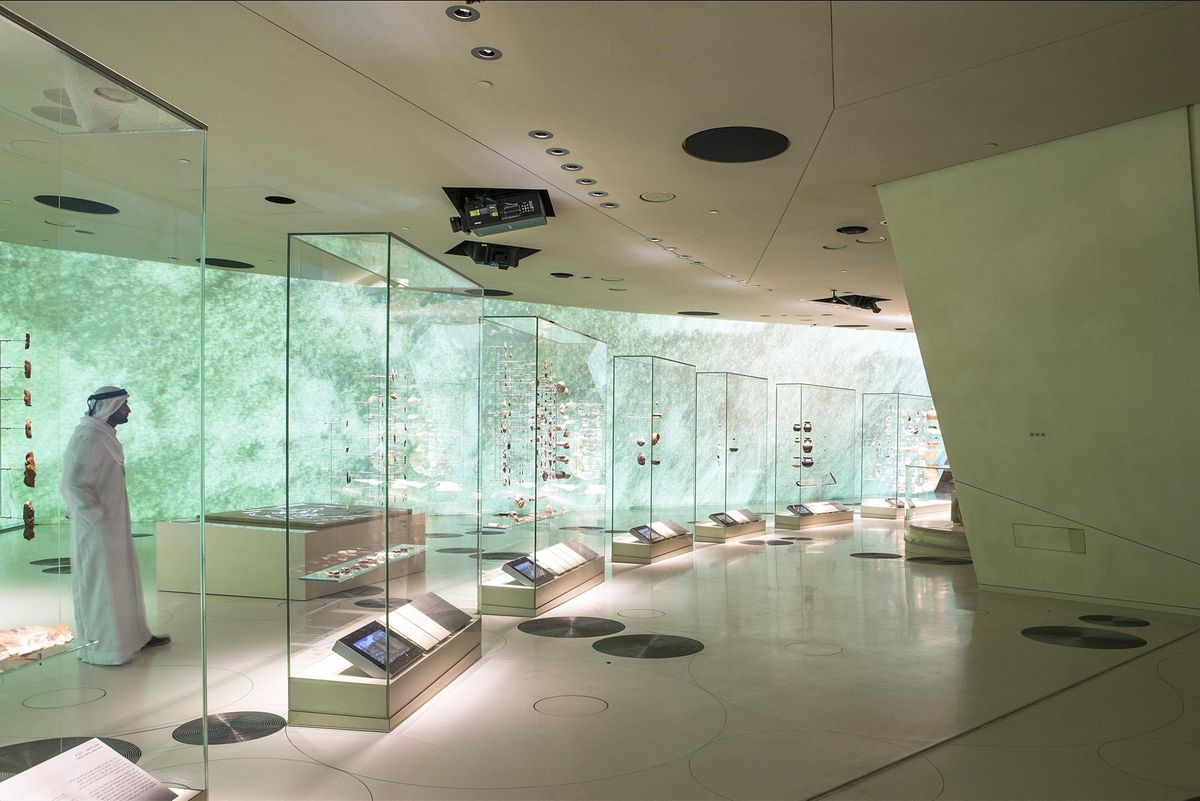
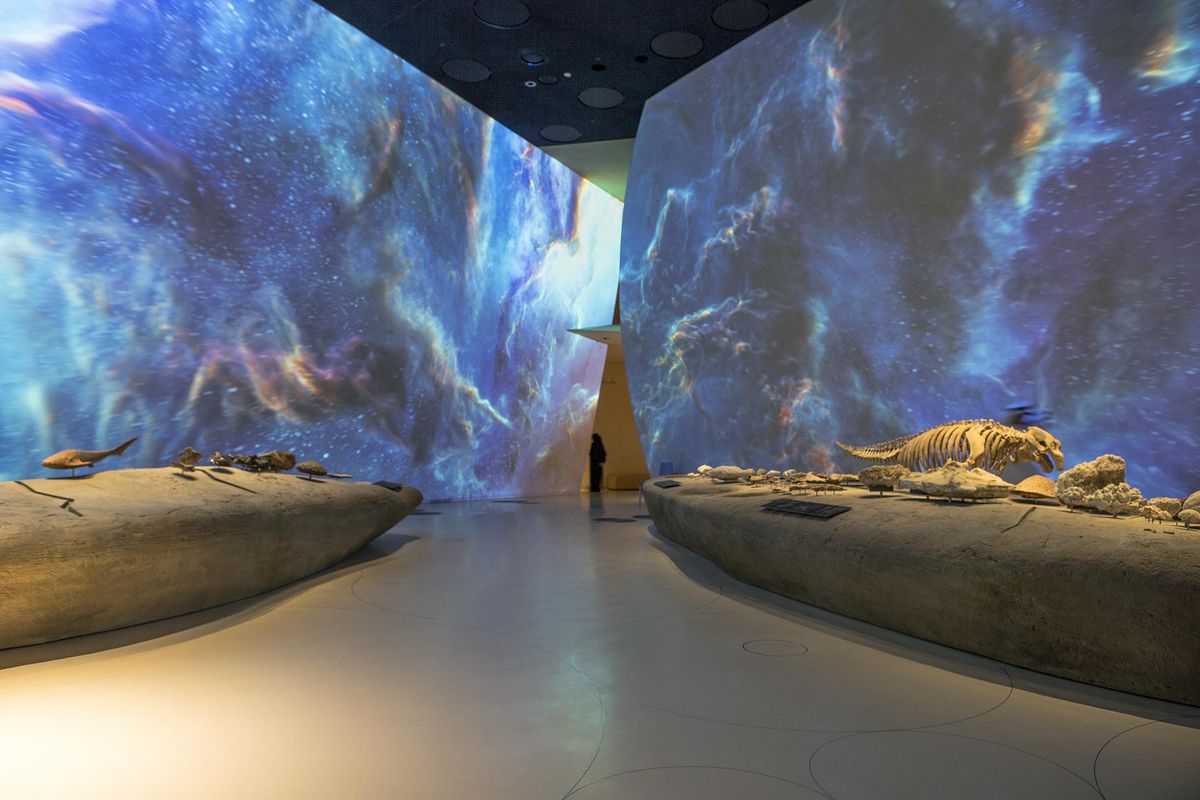
(Agencies)
BEIJING: China said it will prosecute former Interpol chief Meng Hongwei for graft after investigations found he was suspected of taking bribes and breaking discipline rules, local media said.
The ruling Communist Party’s anti-corruption watchdog said it has expelled Meng from the party.
The Interpol, the France-based global police coordination organization, last year said Meng resigned as its president after French authorities said he had been reported missing by his wife after traveling to his home country. (Agencies)
NEW DELHI: Indian Prime Minister Narendra Modi on Wednesday announced India is the fourth nation in the world to officially enter the elite space power club with the successful targeting of a live satellite with an anti-satellite weapon, A-SAT.
In an address to the nation today, PM Modi said even as Mission Shakti operation was a difficult target to achieve, it was completed successfully within three minutes of launch today.”
He said India has successfully taken down a low-earth orbit satellite at the height of 300 km in just 3 minutes, Indian media said.
With this success, he said India has become the 4th nation after US, Russia and China to have a satellite which can take down enemy satellite weapons.
He said this mission does not violate any international norms or laws of security. “This aims to bolster India’s national security, and is a step in ensuring peace,” he said in his address. (Agencies)
BANGKOK: Thailand’s Pheu Thai party claimed on Wednesday it formed a “democratic front” with six other parties after a disputed election.
The party claimed that the opposition alliance had won a majority in the lower house of parliament hence has the right to form a government.
The coalition, however, is likely fall short of electing a prime minister since it requires a combined vote with the upper house of parliament. The Senate, upper house, is entirely appointed by the military junta.
The opposition alliance’s move is likely to lead to a political deadlock in Thailand. (Agencies)
NEW DELHI: Indian Prime Minister Narendra Modi is addressing the nation this afternoon, local media said.
Modi tweeted saying that he would be addressing the nation with an important message. He gave no details. (Agencies)
UNITED NATIONS: Seven people were killed and eight others sustained injuries in an airstrike that targeted a hospital in a rural area of northwest Yemen Tuesday, Save the Children said.
The international aid organization, which supports the hospital, said in a statement sent to the Associated Press that four of those killed were children and two adults are unaccounted for.
Save The Children said a missile struck a petrol station near the entrance to Kitaf rural hospital, about 100 kilometers (62 miles) from the city of Saada at 9:30 a.m. local time on Tuesday.
“The missile was said to have landed within 50 meters of the facility’s main building,” it said.
The organization said the hospital had been open for half an hour and many patients and staff were arriving on a busy morning.
Among the dead were a health worker and the worker’s two children and a security guard, it said.
Save the Children, which reported earlier this week that 37 Yemeni children a month had been killed or injured by foreign bombs in the last year, demanded an urgent investigation into the attack.
Helle Thorning-Schmidt, the organization’s chief executive, said: “We are shocked and appalled by this outrageous attack.”
“Innocent children and health workers have lost their lives in what appears to been an indiscriminate attack on a hospital in a densely populated civilian area,” she said. “Attacks like these are a breach of international law.”
Thorning-Schmidt said the hospital is one of many Save the Children supports in Yemen, “but time after time, we see a complete disregard by all warring parties in Yemen for the basic rules of war.”
The conflict in Yemen began with the 2014 takeover of the capital, Sanaa, by Iranian-backed Houthi Shiite rebels, who toppled the government of Abed Rabbo Mansour Hadi.
A Saudi-led coalition allied with Hadi’s internationally recognized government has been fighting the Houthis since 2015.
Saudi-led airstrikes have hit schools, hospitals and wedding parties and killed thousands of Yemeni civilians. The Houthis have fired long-range missiles into Saudi Arabia and targeted vessels in the Red Sea.
The fighting in the Arab world’s poorest country has killed thousands of civilians, left millions suffering from food and medical shortages, and pushed the country to the brink of famine.
NEW DELHI: A Pew survey published weeks ahead of general elections showed that most Indians are happy with the direction of the country and economic prospects. However, the level of satisfaction has declined over time, the report said.
More than three-quarters of those polled said lack of employment opportunities is India’s biggest problem. The survey found out that the problem had not changed through most of Prime Minister Narendra Modi’s tenure.
The survey said concerns about terrorism and Pakistan loomed large.
Likewise, three-quarters of Indian citizens consider Pakistan a threat while 59 percent said terrorism had become worse.
54 percent people expressed satisfaction with the way democracy is working in the country, the survey found.
A total of 2,521 people were approached for their views in the survey run from May 23 to July 23, 2018. (Agencies)
BANGKOK: Thaksin Shinawatra, Thailand’s former prime minister, has alleged that Sunday’s election was plagued with “irregularities”.
Thaksin, who lives in self-imposed exile, said the inconsistencies in the elections “worried” him, according to BBC.
Early poll results showed the pro-military Palang Pracha Rath Party (PPRP) gaining a larger share of the vote.
The country’s Election Commission said the official results will be released in May. (Agencies)
BANGKOK: In what came as a surprise to many, Thailand’s opposition Pheu Thai party won 138 seats in the House of Representatives.
However, the winners of 150 of the lower house seats are still unclear, Thailand’s Election Commission said after the country’s first vote since a 2014 coup.
The overall winner of yesterday’s polls may not emerge for weeks. The Election Commission said it will announce the official results on May 9.
Pheu Thai is allied with former prime minister Thaksin Shinawatra. He was overthrown in a 2006 coup. (Agencies)
At a time when Pushpa Kamal Dahal alias ‘Prachanda’ last week was flying to the US for the treatment of his spouse, Sita, speculations were rife in Nepal that Prachanda, who led the decade-long Maoist insurgency in Nepal, could face legal hurdles over alleged human rights violation in the US.
The party — once labeled as a ‘terrorist’ outfit by the US government – was delisted from the list of the global terrorist group in 2012.
The US government “makes its terrorist listings based on facts and unless the group is actively engaged in terrorism that is a threat to US interests, it won’t be re-added to the terrorism list”.
Khabarhub talked exclusively to Jason M. Blazakis, former Director of Counterterrorism Finance and Designations Office, Bureau of Counterterrorism, at the U.S. Department of State, to know whether there would be any change on the US position if Dahal assumed the Prime Ministerial post here. Jason ruled out any change on the US policy now. “This is very unlikely to occur in my view,” he said.
According to him, the US government “makes its terrorist listings based on facts and unless the group is actively engaged in terrorism that is a threat to US interests, it won’t be re-added to the terrorism list”.
Jason was the Director of Counterterrorism Finance and Designations Office, Bureau of Counterterrorism, at the U.S. Department of State when the US government removed the Maoist party from the list of the global terrorist group.
In his former role, he was responsible for directing efforts to designate countries, organizations, and individuals as terrorists, also known as State Sponsors of Terrorism, Foreign Terrorist Organizations, and Specially Designated Global Terrorists.
Jason, who is also a terrorism expert, and devises strategies to prevent terrorists from gaining access to money and publicity, said the State Department “removed CPN-Maoists from its listing as a terrorist group pursuant to Executive Order 13224 because the party had begun the process of political reform”.
Currently, Professor of Practice at the Middlebury Institute of International Studies at Monterey, USA, Jason stated that at the time of delisting, there were “no recent acts of violence that could be directly attributed to the group”.
Regarding Dahal’s visit to the US, Professor Jason, who is also the President of Riptide Threat Mitigation Group, Inc., a geopolitical risk consultancy, said he “did not have any concerns if the trip was made in accordance with U.S. law”.
“The decision to delist the group should be not be viewed as US acceptance for the group’s terrorist past and violence misdeeds,” he told Khabarhub adding that the delisting was about encouraging the group to become part of a legitimate political process.
Regarding Dahal’s visit to the US, Professor Jason, who is also the President of Riptide Threat Mitigation Group, Inc., a geopolitical risk consultancy, said he “did not have any concerns if the trip was made in accordance with U.S. law”.
“The Maoists are no longer labeled as a terrorist group,” said Jason, who previously held positions in the Department of State’s Political-Military Affairs, International Narcotics and Law Enforcement Affairs, Intelligence and Research Bureaus, and at U.S. Embassy Kabul.